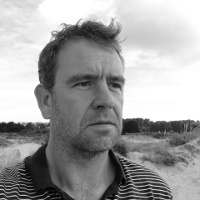Dispersal: key to eco-evolutionary dynamics in populations and communities

Dries BONTE
Department of Biology Ghent University, Belgium - dries.bonte@ugent.be
(Seminar in English)
Dispersal, the movement of organism from their place of birth to their location of reproduction, is an essential trait in life history and tightly coupled to fitness. A thorough understanding of both the ecological and evolutionary causes and consequences can therefore only be achieved by putting the fitness concept central. I will first outline this theoretical framework and provide insights on how individuals can achieve an optimal dispersal strategy, and why optimal strategies are different among individuals. Next, I will provide a selection of empirical and theoretical examples that demonstrate the consequences of (evolved) changes in dispersal on both metapopulation- and metacommunity dynamics. By closely matching empiricism with theoretical predictions, I will be able to pinpoint why current theory fails in advancing the field of movement ecology towards a predictive discipline in spatial ecology.
Recent publications:
Bonte, D., De Roissart, A., Wybouw, N. & Van Leeuwen, T. (2014). Fitness maximization by dispersal: evidence from an invasion experiment. Ecology 95: 3104-3111
Van Petegem, K., Moerman, F., Dahirel, M., Fronhofer, E., M. Vandegehuchte, N. Wybouw, T. Van Leeuwen, Stoks, R. & Bonte, D. (2018). Kin competition accelerates range expansion in an arthropod herbivore. Ecology Letters 21: 225-234
Hillaert, J., Vandegehuchte, M., Hovestadt, T. & Bonte, D. (2018). Information use during movement regulates how fragmentation and loss of habitat affect body size. Proc. R. Soc. Lond. B.


